Who was involved
We had a Steering Group, which is the group of people who managed the Adult Social Work Priority Setting Partnership.
These members of the Steering Group represent people who have a social worker or have been in contact with social workers in England

John is a former college lecturer in Business and Management whose specialism was Marketing. He is Vice Chair of his local GP practice Patient Participation Group and represents Healthwatch Kent on the Ashford Health and Wellbeing Board, itself a sub-committee of the Kent Health and Wellbeing Board.
He is currently actively seeking an improvement in rheumatology care for patients in Ashford. John is also Chair of the Kent Countryside Access Forum, a Statutory Body charged with advising local authorities and others of their responsibilities for access for all, being firmly committed to the belief that access to the countryside generally has a tremendous beneficial effect upon the wellbeing of all sections of society but especially for those who have physical and mental health issues.
Since becoming a carer for his wife, who has multiple long-term conditions, he has become a Trustee of Carers’ Support, Ashford, Shepway and Swale. They provide a range of services supporting Carers many of whom do not readily recognise that they are Carers but who may have very specific health and social needs of their own. He has attended various forums where he has spoken of the various needs of Carers and pleaded for broader recognition that those needs differ greatly and are not single dimensional. John feels that the PSP Steering Group offers an interesting opportunity to put forward this view and hopes that his contribution proves useful.
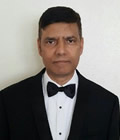
Ally is the main carer for his son Bashir (23), born with Mosaic Down Syndrome and ASD. He is a volunteer ambassador for CarersUK and is employed as a Visitor Advisor for Transport for London. He is Comms Chair for Transport for London Carer Staff Network Group and organiser of a parent support group “UpsideofDown” in Newham, London. He is a member of various national organisations with a link to disability and advocacy.
Ally has taken part in various research projects for Mind, Mencap and the Department of Health’s recent work on Social Workers. He is a winner of the charity “CEREBRA” Parents Award of the year 2011.
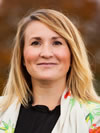
Sally is the Principal Officer for Inclusion at Speakup. She is also studying for a PhD in Digital Inclusion and Learning Disability at Manchester Metropolitan University. Sally has worked in the field of self-advocacy for the last 16 years, supporting people with learning disabilities and/or autism to have their say in local, regional and national policy. Sally has practice assessed over 50 social work students working closely with the Universities of Sheffield, Sheffield Hallam and Huddersfield.
Sally sits on the Yorkshire and Humber Steering Group for LeDeR and supports the Rotherham, Doncaster, Sheffield and North Lincolnshire Transforming Care Partnerships.
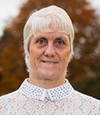
Alison Owen sits on the National Co-production Advisory Group for Think Local Act Personal she also works for a self advocacy group called Speakup in Yorkshire. In 2016 Alison won the National Learning Disability and Autism Award for Making a Difference. Alison was the National Forum Representative for the Yorkshire and Humber region until 2016.
Alison represents the voice of people with learning disabilities and local, regional and national meetings and is passionate about co-production.
These members of the Steering Group represent or support people who are social workers
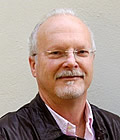
Peter is a freelance consultant and trainer specialising in the Care Act. He has a background of working in social care as a social worker, trainer, manager and policy developer. His particular interest is in the role of social workers in applying professional judgements and ethical practice in the context of legal rules. He is the author of “The Social Worker’s Guide to the Care Act 2014."
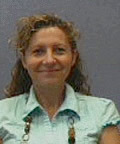
Suzanne is currently in a seconded position from Stoke-on-Trent Local Authority into a post as a Learning and Research Associate with the West Midlands Social Work Teaching Partnership (WMSWTP). The partnership is a collaboration of nine Local Authorities with Birmingham City Council as lead authority and the University of Birmingham as HEI (Higher Education Lead). The role of the Learning and Research Associate seeks to bridge academia and practice. She is currently involved in key work streams on the implementation plan and completing a mini research project.
Suzanne is a Senior Social Worker from Adult Services in Stoke, with 20 years of experience of both Children and Adult services in Stoke-on-Trent. She agreed to join the Steering Group for the Priority Setting Partnership in Adult Social Work to represent the British Association of Social Workers and the WMSWTP. Suzanne is committed to embracing the strategic vision to change organisational cultures through investment at all levels to strengthen social work and strengthen leadership.
Pam works for Framework Housing Association, a voluntary sector organisation that works primarily with homeless and vulnerably housed people. She is a Registered Social Worker and Practice Educator 2 and her current role is as the lead and developer on Framework’s ASYE program, which is now coming up to its 5th year. She is also a practice trainer and delivers training to Framework’s staff.
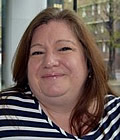
Karen is the vice chair of the Adult Principal Social Work Network and the Head of Social Work and Social Care at Central and North West London NHS Foundation Trust. She has been a qualified social worker since 1994 and works primarily in the field of mental health.
Elaine is Head of Adult Social Care Policy and Strategy for Bradford Council. She has over 25 years experience in the field of health and social care working across voluntary and statutory sectors.
Avital is a Senior Social Worker who works as part of the Community Support and Social Work Service (CSSW) in Jewish Care. She works with clients, their families and professionals in the wider community to enable people to improve their wellbeing and to feel part of the community. Her other roles are as a Senior Advisor on the Jewish Care Helpline and a Learning and Development Coordinator for the CSSW.
These members of the Steering Group represent people who are researchers
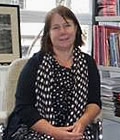
Jill is Professor of Social Work and Director of the Social Care Workforce Research Unit at King’s College London. The Unit conducts research into social work and care for the Department of Health and other funders. She is Emeritus Senior Investigator of the National Institute of Health Research; a visiting professor at the University of Melbourne, University of Singapore and Ulster University.
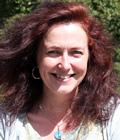
Lisa is the Assistant Director of Research in Practice for Adults. She is experienced in service redesign and development, having worked as a commissioner.
Lisa has a background in research having worked for a number of years at the University of Bath in the Mental Health Research and Development Unit as both a researcher and a research governance facilitator.
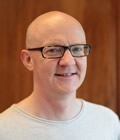
Mike is the Research Programme Manager for the National Institute for Health Research School for Social Care Research. In this capacity he pursues developing stronger links between research and social care practice and the lived experiences of people using services and carers. He is an active researcher in the Personal Social Services Research Unit at the London School of Economics and Political Science, and editor of the new Journal of Long-Term Care.
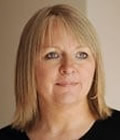
Samantha (Sam) Baron is an acknowledged system-wide leading figure in social work education and a Professor of Social Work. As the current elected Chair of the Joint University Council Social Work Education Committee (JUC-SWEC), she frequently represents social work education at governmental level and is regularly consulted and asked to lead and participate in working groups defining standards for social work education. She has worked in higher education for over 25 years and has practised as a mental health social worker and manager within a local authority.
These members of the Steering Group will help to run it
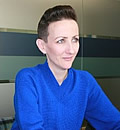
Katherine is Senior Adviser to the JLA and has been a key contributor to the development of its methods and profile since 2008. Katherine co-wrote and edited the original JLA Guidebook. She has chaired over 20 PSPs and facilitated at more than 30 priority setting workshops. She is passionate about the JLA method and its potential to bring disparate and often seldom-heard groups together to influence the research agenda.
Katherine’s professional background is in social research and she has a particular interest in public participation and inclusion.
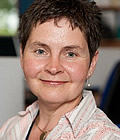
Caroline is a Research Manager for the James Lind Alliance (JLA) at the National Institute for Health Research Evaluation Trials and Studies Coordinating Centre (NETSCC) based at the University of Southampton. In her work with the JLA, she handles enquiries from people wanting to start new PSPs, supports JLA communications, facilitates workshops to allow patients, carers and health professionals to work together to agree research priorities, and works closely with the rest of the JLA team.
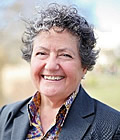
Lyn took up her post as Chief Social Worker for Adults in September 2013. Previously, Lyn worked as the Assistant Director for Adult Social Care in the London Borough of Camden. She has also worked as an inspector with the Social Services Inspectorate and in frontline and management roles across children and adults services.
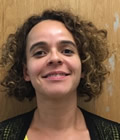
Katie is a civil servant in the Department of Health where she has worked since 2013 as policy manager to the Chief Social Worker for Adults. Before that, she worked in in various policy roles in the Department for Communities and Local Government (DCLG).
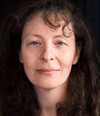
Kristina has been working in the field of public involvement in health and social care research for 20 years. She is the Director of TwoCan Associates, a small consultancy firm specialising in researching involvement and developing policy and practice. She has worked as an Information Specialist on a range of JLA PSPs. She will help us to gather together the survey responses to find out what unanswered research questions are most important to everyone.

